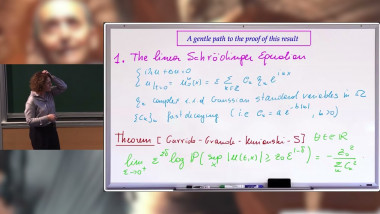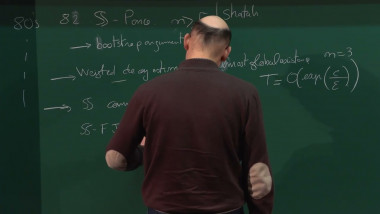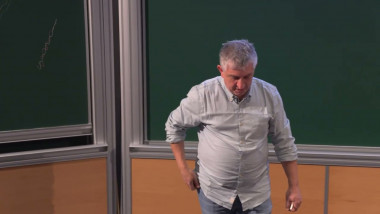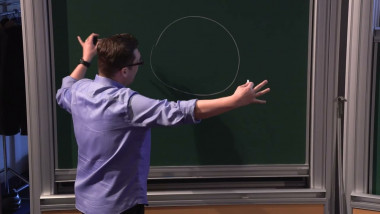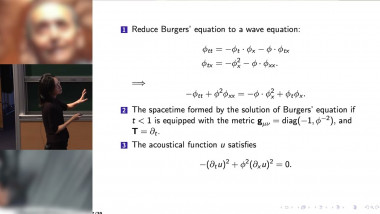Apparaît dans la collection : CEMRACS - Summer school: Numerical methods for stochastic models: control, uncertainty quantification, mean-field / CEMRACS - École d'été : Méthodes numériques pour équations stochastiques : contrôle, incertitude, champ moyen
Recently, an important research activity on mean field games (MFGs for short) has been initiated by the pioneering works of Lasry and Lions: it aims at studying the asymptotic behavior of stochastic differential games (Nash equilibria) as the number $n$ of agents tends to infinity. The field is now rapidly growing in several directions, including stochastic optimal control, analysis of PDEs, calculus of variations, numerical analysis and computing, and the potential applications to economics and social sciences are numerous.
In the limit when $n \to +\infty$, a given agent feels the presence of the others through the statistical distribution of the states. Assuming that the perturbations of a single agent's strategy does not influence the statistical states distribution, the latter acts as a parameter in the control problem to be solved by each agent. When the dynamics of the agents are independent stochastic processes, MFGs naturally lead to a coupled system of two partial differential equations (PDEs for short), a forward Fokker-Planck equation and a backward Hamilton-Jacobi-Bellman equation.
The latter system of PDEs has closed form solutions in very few cases only. Therefore, numerical simulation are crucial in order to address applications. The present mini-course will be devoted to numerical methods that can be used to approximate the systems of PDEs.
The numerical schemes that will be presented rely basically on monotone approximations of the Hamiltonian and on a suitable weak formulation of the Fokker-Planck equation.
These schemes have several important features:
The discrete problem has the same structure as the continous one, so existence, energy estimates, and possibly uniqueness can be obtained with the same kind of arguments
Monotonicity guarantees the stability of the scheme: it is robust in the deterministic limit
convergence to classical or weak solutions can be proved
Finally, there are particular cases named variational MFGS in which the system of PDEs can be seen as the optimality conditions of some optimal control problem driven by a PDE. In such cases, augmented Lagrangian methods can be used for solving the discrete nonlinear system. The mini-course will be orgamized as follows
Introduction to the system of PDEs and its interpretation. Uniqueness of classical solutions.
Monotone finite difference schemes
Examples of applications
Variational MFG and related algorithms for solving the discrete system of nonlinear equations
